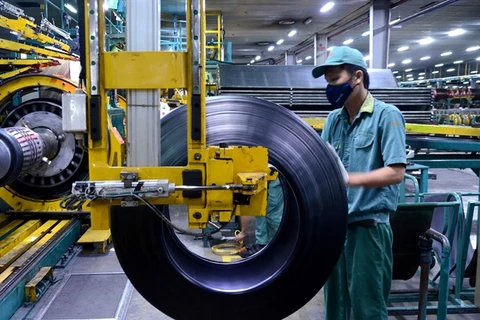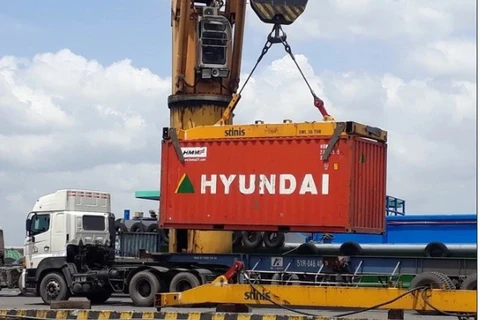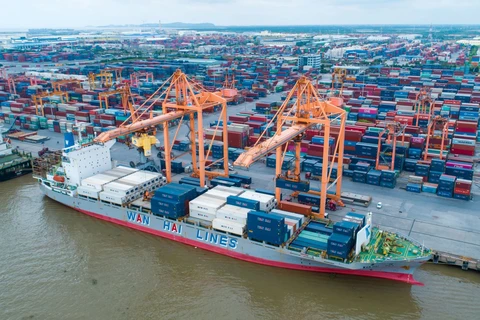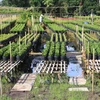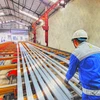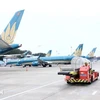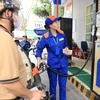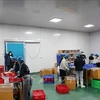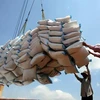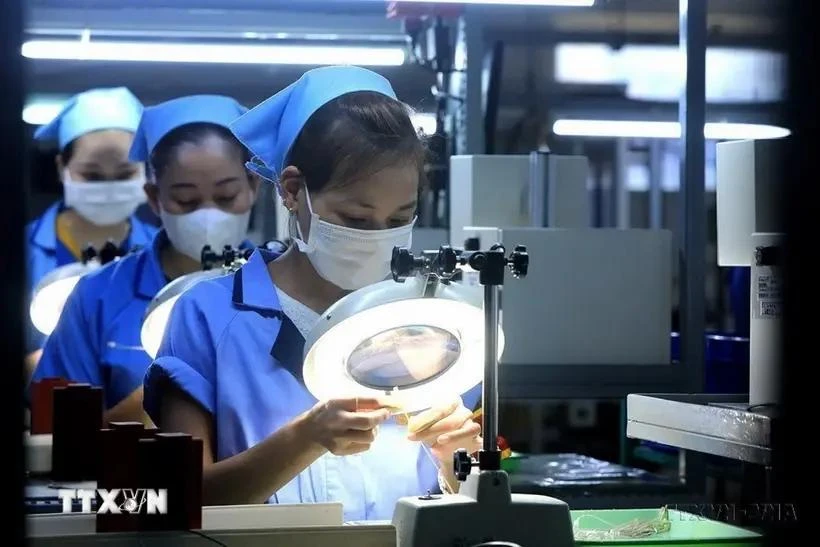
HCM City (VNA) - The Vietnamese manufacturing sector in October started to recover from the effects of September's Typhoon Yagi, recording renewed increases in both output and new orders, according to S&P Global.
However, some disruption to supply chains and production remains, October data show.
The S&P Global Vietnam Manufacturing Purchasing Managers' Index (PMI) posted 51.2 in October, up from 47.3 in September and back above the 50.0 no-change mark following the disruption caused to the sector by Typhoon Yagi in the previous month.
Business conditions have now strengthened in six of the past seven months, although the improvement in October was only modest.
Central to the renewed strengthening of the health of the sector were returns to growth of both output and new orders as the recovery from the typhoon got underway. However, rates of expansion were softer than in the months leading up to September as some firms continued to face disruption following the storm and associated flooding.
Alongside the rise in total new business, new export orders also increased in October. That said, the rate of expansion was only marginal amid some reports of subdued international demand, S&P Global noted.
Manufacturers continued to use stocks of finished goods to help fulfil orders at a time when production was partly hampered. Post-production inventories decreased at the fastest pace in three months. Meanwhile, employment ticked down, reversing the rise seen in the previous month. Some firms reported that resignations had caused a drop in their staffing levels.
Suppliers' delivery times lengthened for the second month running in October as storm-triggered disruption continued to affect transportation. However, lead times lengthened to a lesser extent than in September.
Purchasing activity returned to growth amid higher new orders and expected increases in production in the months ahead. However, the rate of expansion was only marginal as some firms reported that they had sufficient holdings of inputs.
Stocks of purchases continued to fall as inputs were used to support growth of production. The rate of depletion was much weaker than the near-record seen in the previous survey period.
Manufacturers reported a rise in input costs amid currency weakness and higher prices for oil, metals and transportation. In turn, firms increased their own selling prices. However, the rate of charge inflation was only slight, as some respondents indicated that competitive pressures had led them to offer discounts.
Rising sales, hopes for stable market conditions, and business expansion plans all contributed to positive expectations regarding manufacturing production over the coming year. Optimism dipped to a nine-month low and was weaker than the series average. Some firms indicated that uncertainty around the US Presidential Election had dampened confidence, according to S&P Global.
Andrew Harker, Economics Director at S&P Global Market Intelligence, said: "October data showed that the recovery from the disruption caused by Typhoon Yagi got underway during the month, with firms seeing a rise in new orders and being able to expand their production.”
“Some companies are still suffering from the effects of the storm, however, limiting rates of expansion. We should hopefully therefore see growth pick-up as more manufacturers get back up to full capacity towards the year end," he added./.
